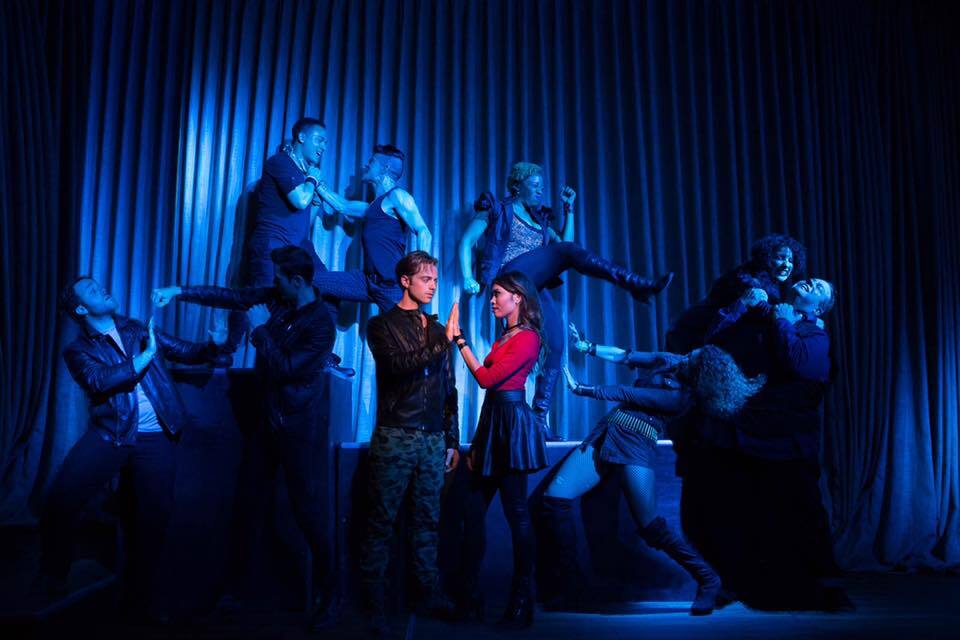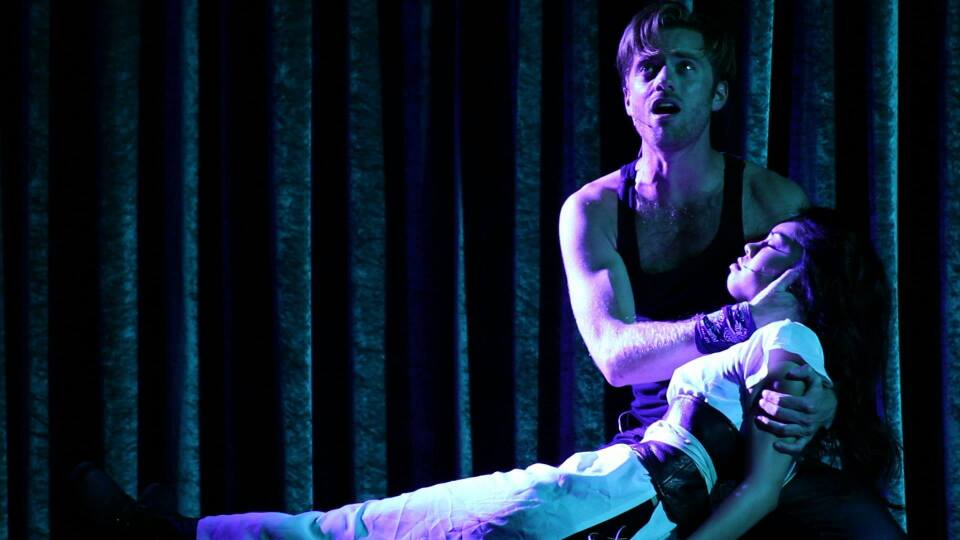Ira Sachs' latest is a coming-of-age film with a gentrification angle set in Brooklyn; a dinner theater in Hollywood is combining Shakespeare with '80s pop music and a chef-driven menu; screenwriter Mark Boal is trying to avoid turning over all his taped interviews with Bowe Bergdahl.
Should a journalist's privilege to protect sources extend to filmmakers?
Last month, screenwriter Mark Boal sued the United States government over a threatened military court subpoena of about 25 hours of recorded interviews he conducted with U.S. Army Sgt. Bowe Bergdahl, who is scheduled to be tried for desertion in February. Some of the interviews were used on the popular podcast, “Serial.”
Last Friday, 36 media companies — including CNN, The Washington Post and National Public Radio — asked permission to file a friend-of-the-court amicus brief on Boal’s behalf, urging broader recognition of journalistic source material being protected from disclosure and government intervention.
Boal, who wrote "The Hurt Locker” and “Zero Dark Thirty," is also using the interviews as the basis for a screenplay he is writing about the Bergdahl episode. His pre-emptive action against the government is raising the question of whether a filmmaker should be given the same protections as journalists.
Several years ago, award-winning documentary filmmaker Joe Berlinger faced a battle over his 2009 documentary, “Crude,” a behind-the-scenes look at class-action lawsuit plaintiffs in Ecuador who claim that Chevron-owned Texaco contaminated local waters. The director behind 2004’s “Metallica: Some Kind of Monster” and the new Netflix movie, “Tony Robbins: I Am Not Your Guru,” was sued by Chevron, and ordered to surrender 600 hours of interview outtakes from “Crude." Media outlets also filed a friend-of-the-court brief in support of Berlinger, to no avail.
Berlinger said the his “Crude" documentary cost $1.2 million to make, but his legal battle cost $1.3 million.
"The documentary business is not the most profitable end of the entertainment business," Berlinger told The Frame’s John Horn. "So that’s beyond real money to have to deal with.”
Similarly, Dole sued Swedish filmmaker Fredrik Gertten over his 2009 documentary, “Bananas!” The film details the produce company’s alleged misuse of a pesticide in Nicaragua.
Berlinger lost his legal battle with Chevron, appealed, then lost again, setting a precedent with “tremendous chilling effect,” he said, for “filmmakers being afraid to take on tough stories because of the costs of defending yourself against these kinds of invasions into the journalist’s privilege, and an effect upon whistleblowers.”
Berlinger fortunately was aided financially by music bigwigs Sting and Metallica during his legal fight, and entertainment notables such as Robert Redford and Norman Lear rallied around him as well, he said.
Honoring source confidentiality is key for documentary filmmakers to maintain trustworthiness and access, Berlinger added. Boal’s case, like his, hinges upon the idea of expanding what a journalist is so that filmmakers and screenwriters are also protected under reporters' privilege.
“Since my Chevron lawsuit," said Berlinger, "I’ve had dozens of phone calls from young filmmakers who are afraid to proceed with their stories, concerned about what it means to be sued, how to protect themselves."
Ira Sachs' 'Little Men' is his nod to 'The Red Balloon' and other films about childhood
With "Little Men," Ira Sachs wanted to make a film about childhood that felt "authentic" and more similar to the movies from his youth than those that Hollywood studios currently make. It is the sixth feature from
who co-wrote it with his regular writing partner, Mauricio Zacharias. The movie premiered at this year's Sundance Film Festival.
"Little Men" is partly a story of gentrification in Brooklyn and partly a coming-of-age tale about two young teenage boys. It follows the budding friendship of Tony and Jake. Tony is the son of a single mom who runs a clothing shop on the ground floor of Jake’s grandfather’s house in Brooklyn. When the grandfather dies and Jake’s family moves in upstairs, the two boys become friends. The conflict comes when Jake’s parents want to raise the rent on the shop, which Tony’s mother can’t afford.
When Ira Sachs came into The Frame studios to chat with host John Horn, they discussed how becoming a parent has affected his movie-making and and how he's been able to create a sustainable career as an independent filmmaker. Hear the full interview by clicking the play button above.
ON HOW BEING A FATHER HAS AFFECTED HIS MOVIEMAKING:
The strongest way is that I want to give them films that I feel are different than the ones I'm seeing for kids being made, particularly [by] the studios. This is a film about childhood, but told with a certain amount of authenticity and maturity, as opposed to the superhero films and the animated stories. I feel that there's a whole kind of movie that I grew up with, whether that be "The 400 Blows" or "The Red Balloon" or "The World of Henry Orient" or films about childhood that somehow feel real and reflect my own experience. I wanted to make that kind of cinematic film.
ON FINDING THE TWO ACTORS TO PLAY THE BOYS:
Theo Taplitz [Jake] is from Los Angeles and he sent a tape [where] he'd read one of the scenes from the film. It felt like a documentary about the character that I'd written. It was very striking. He also has an emotional intelligence which you can feel in his performance.
Michael Barbieri [Tony] came from an open call in New York City. I'd put up signs around the town and we had a call. He came in and he's such a New York kid. He has extraordinarily vibrant energy. I just was immediately taken with him. Somehow I imagined that these two kids would be very different, but also at the same point in their own lives. They felt really of a unit.
ON THE SCENE BETWEEN THE CHARACTER TONY AND HIS ACTING COACH:
Michael's character really wants to be an actor and go to La Guardia High School for the Performing Arts. I wanted, in one moment, to know that he was good at his desire and you feel that in this scene. He really comes alive. This film is also about childhood and the certain freedoms that take place, and I think there's something about seeing someone just do something so passionately, which feels very youthful.
ON THE INFLUENCE THE SUNDANCE FILM FESTIVAL HAS HAD ON HIS LIFE:
I started to go to Sundance when I was 13. My father started spending the winters there in the mid '70s. I actually got there before Robert Redford, before it was the Sundance Film Festival. It was called the U.S. Film Festival. It was the birth of independent cinema. They used to do retrospectives there also. I saw all of John Cassavetes at Sundance. I saw all of Sam Fuller at Sundance. To me, I remember being in a room and Seymour Cassel was sitting across the room — the wonderful Cassavetes actor. It was as if I had seen a huge movie star. For someone else it might have been Taylor Swift, but for me it was Seymour Cassel. I was probably 16 years old and I knew that there was a world that existed that I could enter.
An ambitious effort to remake the outdated tradition of dinner theater
The Prospect Theatre in Hollywood is looking to change the face of dinner theater by pairing Shakespeare with '80s pop music, a chef-driven menu and a liberal policy on cell phone usage.
“Love Is a Battlefield” is Prospect Theatre's ambitious new production that re-imagines the tragic tale of Romeo and Juliet. So if you can imagine actors in leather jackets and ripped jeans dancing through an audience singing Michael Jackson, Prince and Pat Benatar, you’re halfway there. Add a dinner menu by award-winning chef Kyle Schutte, dim the lights and order a cocktail, and you have a new approach to dinner theater.
When the show’s artistic producer, Joey Bybee, joined The Frame, he said that his audience needs to be people interested in a little bit of everything.
Interview Highlights:
One of the things I noticed was that a ton of people had their mobile phones out and were shooting video during the show. You seem to want that to happen.
Encourage it, definitely. I mean, it's just the way of things now. There's a line from, I think, "Henry V" where he says, 'Tis your thoughts now that must deck our kings. Well, in our case it's, 'Tis your tweets now that must fill our seats. One of the main goals of this type of immersive entertainment is to make it social. So if I were to cut off the social media element of social, then I'd be doing them a disservice.

Romeo and Juliet is an epic, tragic love story. What are the actors going through when they're hearing silverware clinking as they're trying to die on stage?
At first glance, they always hate it. Every one of them is like, This is awful! And it's just a challenge I suppose that we're offering food and drink and there are things that come along with that. Every problem has a solution, so if there's not a solution, there's not really a problem. It's a parameter. So here's our parameter for the show.

Do the actors know that going in? And if there's a certain actor who wants to have purity of performance, he/she is probably not in the right production, right?
(Laughs) That's true. I actually have a couple members of my cast that very strongly feel that way. However, they are super professional insofar as that world is not happening around them.
They're able to shut it out?
Yeah. There is no one else there. They are just there having their scene.




